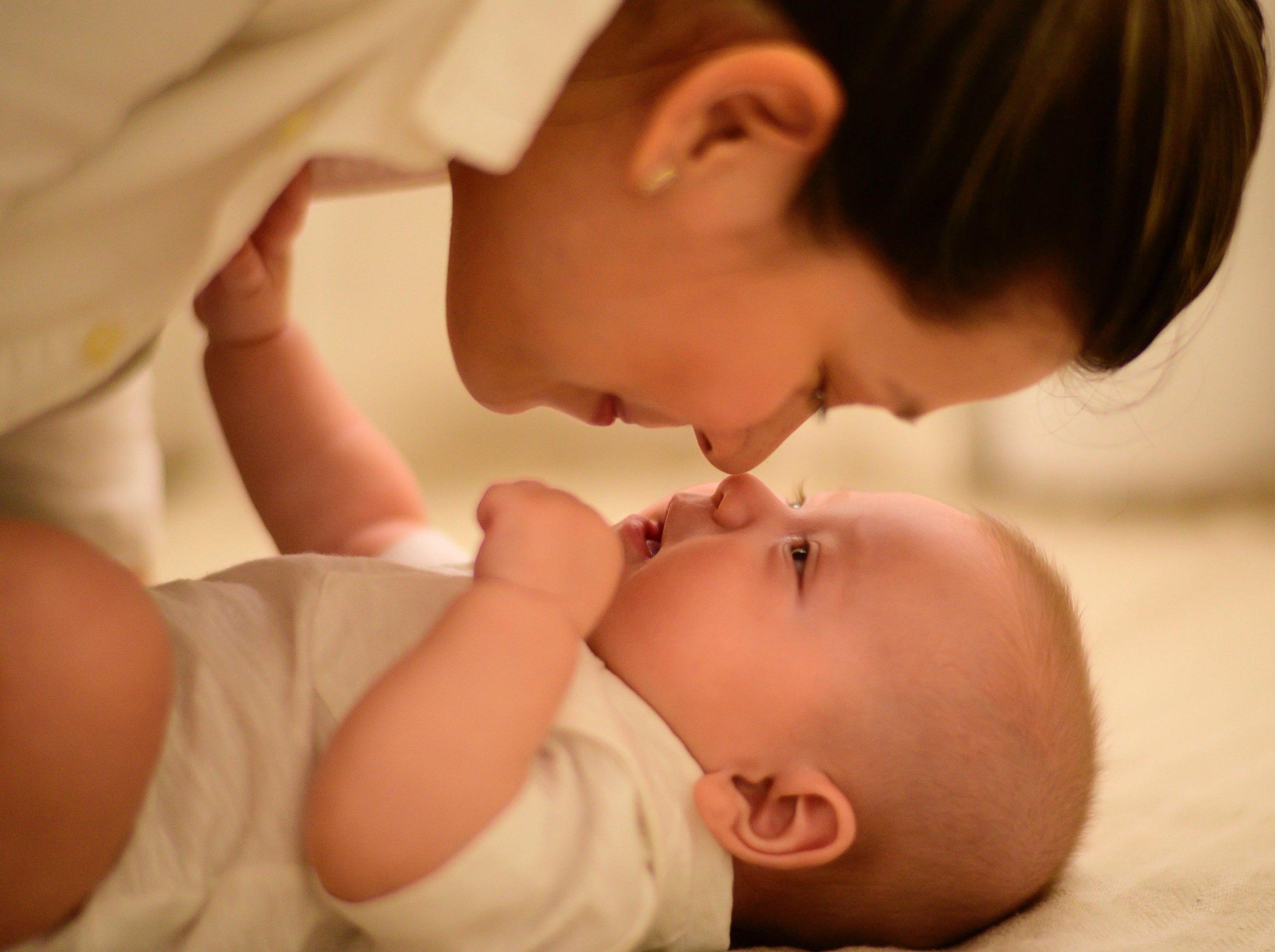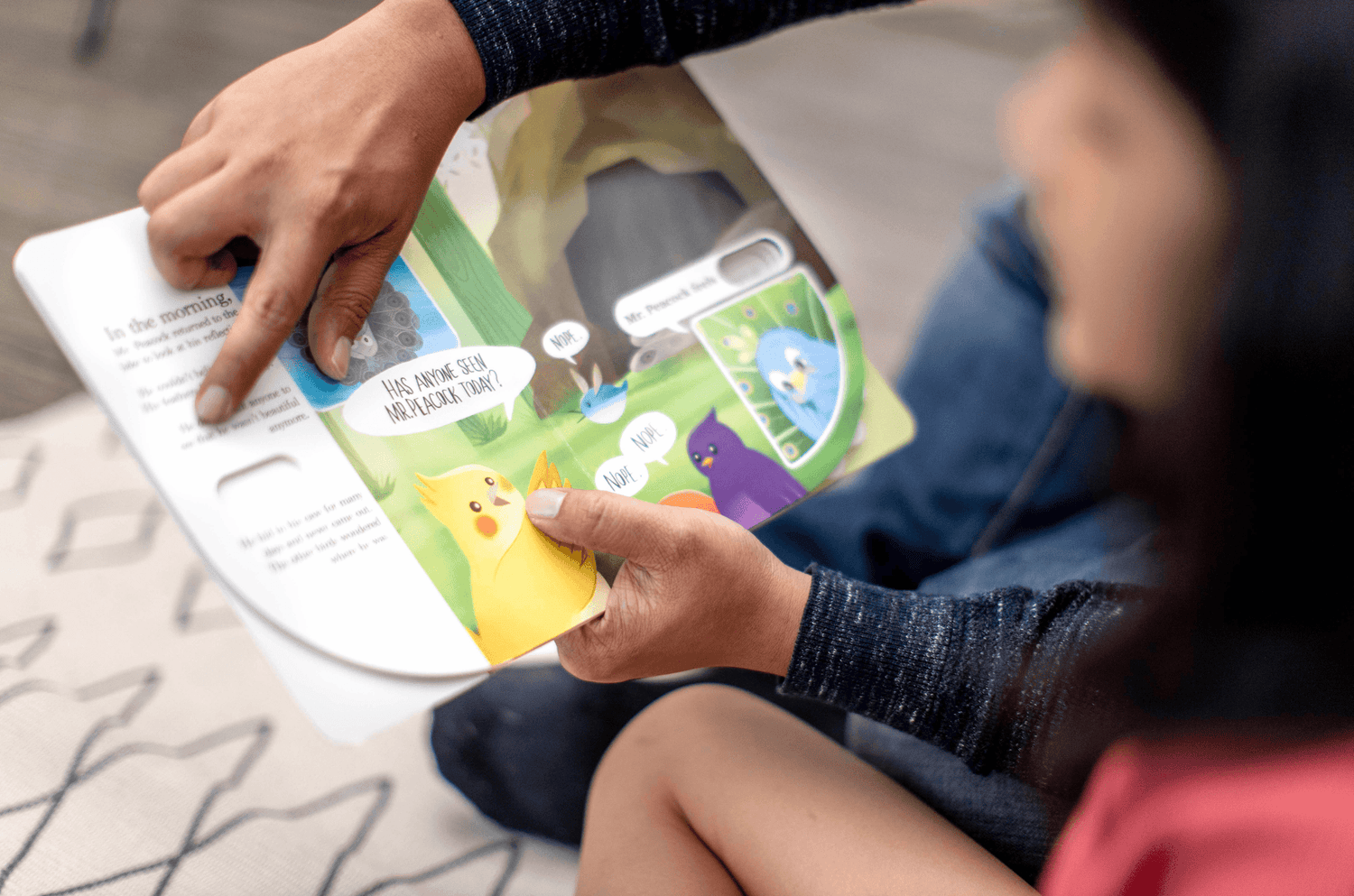In tennis, when one player serves, the other player returns, and a rally begins. The same is true for interacting with your baby - your baby ‘serves’ and you ‘return’. In fact, Harvard researchers claim that serve and return interactions actually shape early brain development. Here's what serve and return interactions look like in the first few months.
Example of serve and return
Baby: Looks at you and smiles
You: Look back at your baby and smile
Baby: Reaches for your hand
You: Extend a finger for them to hold
Baby: Starts cooing
And so on…
Notice your baby’s signs of communication (‘Serves’)
This may take getting used to but any little thing like a smile, looking at you, crying, cooing, reaching or pointing are all ‘serves’.
Responding to your baby (‘Returns’)
If you’re not sure how to respond, most of the time, imitating what they do is perfectly fine, and your baby will likely enjoy seeing this.
Who initiates?
Normally, your baby will initiate an interaction. The signs are usually clearer when you are fully engaged in the activity with your baby, such as when you spend time playing together.
Have a conversation
It might feel awkward talking to yourself but your baby is definitely listening and absorbing. Have conversations with them about anything at all.
Many of you may already do this naturally without knowing it. Often, having the right toys alone is not enough to promote these interactions - parents have to know how to engage with their baby in an age-appropriate way for it to be effective.



